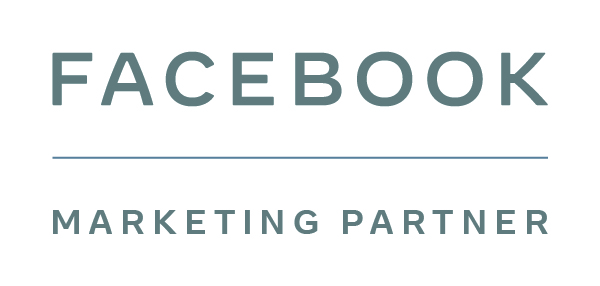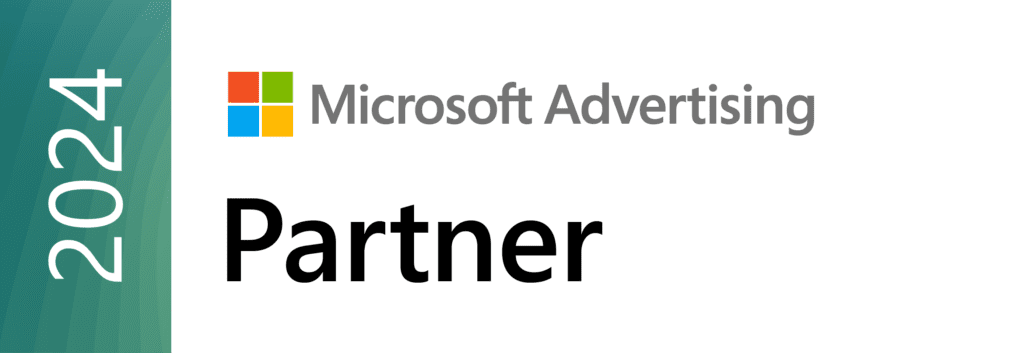Social media has, for better or worse, been around for a while—long enough anyway for marketers’ excitement for it as a sales channel wax and wane several times over. The discipline of social media marketing however is barely about 9-10 years old (depending on how you look at it) it stands to figure that with small, medium, and large businesses people are still learning how to use the whole set up and that school boy errors abound.
The bad news is that you are probably neglecting it—having a Facebook only because someone told them to do it. The good news, it’s really not that hard. The following are some points I typically like to make to clients who are interested in social media as part of their business.
1. ROI is not the point of social media
Some businesses throw a little money after social, some throw a lot. Some businesses are on the fence about whether or not to make the investment either way and inevitably they want to know what sort of return they are going to see. Ignoring paid placement (of which has demonstrated a weak potential for return anyway…so far but will otherwise cover later), ROI on social media is impossible to measure. There are simply too many variables to be able to provide accurate data. Smart companies change the metric to measure social success—namely, audience-building, brand awareness, and customer relations.
2. You get different things out of each platform
That said, what data is available points to the fact that Facebook is B2C,and Linkedin is B2B.Otherwise, Twitter is conversational, tumblr is for 11 year olds pretending to be 14 year olds pretending to be 27, Grinder/Tinder are for hook-ups, and Pinterest is for single women planning their weddings and fantasising about cupcakes while dieting. G+ is largely advisable solely because Google is now partially basing your website’s search engine rankings on it according to MOZ.
3. Social Media exposes you to certain kinds of risk
When doing something on social media (tweeting tweets, posting Facebook posts, Instagraming Instagrams) you are going to be performing dozens of little actions daily. And everyone messes up. It’s a statistical inevitability. When you mess up on social media, your mess-ups are going to be really really public. Kellog’s UK, or more accurately, the poor social media executive in charge of Kellog’s UK twitter account was responsible for the following gem several weeks back:
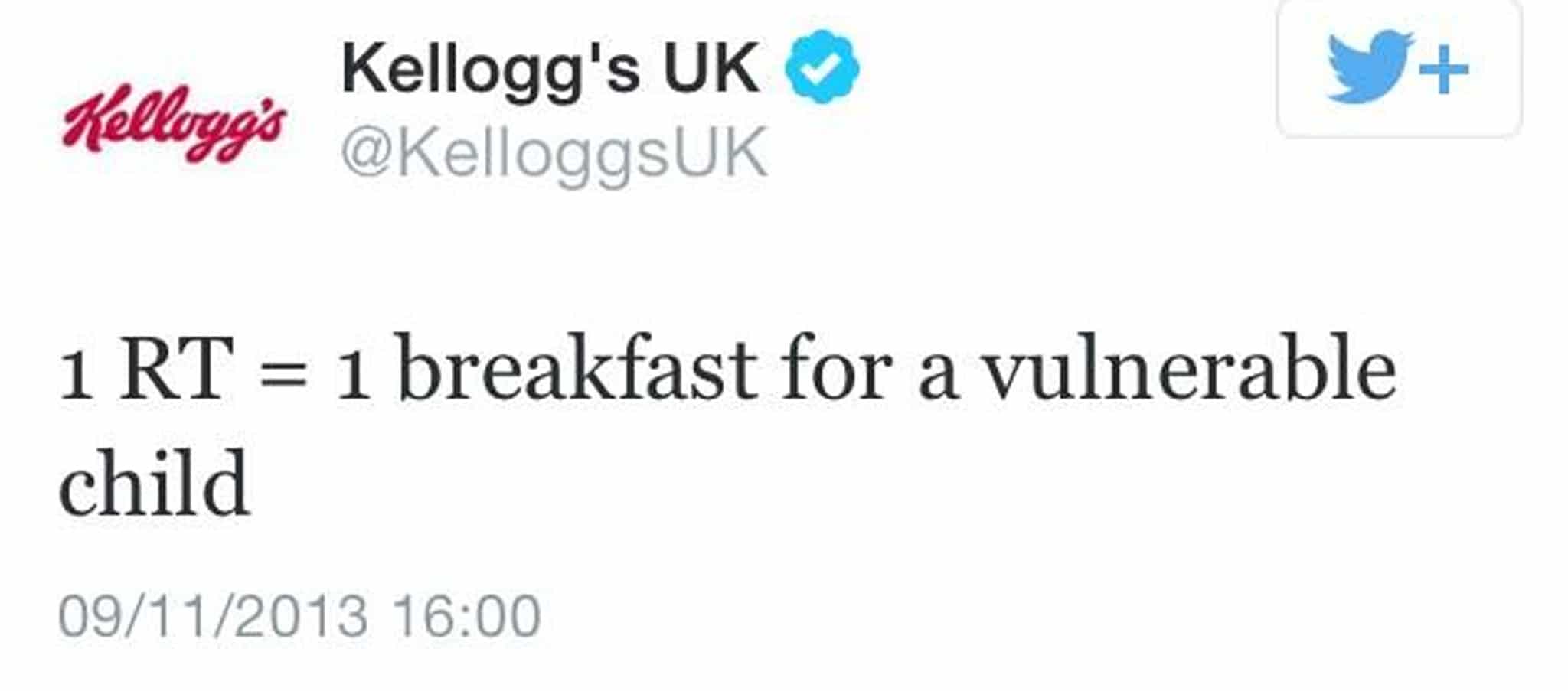
They promptly got rid of it, though saying “We want to apologise for the recent tweet, wrong use of words. It’s deleted. We give funding to school breakfast clubs in vulnerable areas”, but the damage was done and the story was picked up in the Metro, Independent, the Mirror, the Telegraph, and thousands of other ad and pr world publications.
4. But Gaffes are not the end of the world
Social Media also makes apologising really really easy. But like any apologies, don’t mince words and be straight to the point which is that you’re sorry. When Kellogg’s posted their apology for the above, they attracted even more negative attention.
.@KelloggsUK Not "wrong use of words", you said exactly what you meant to say. It was just a lousy social marketing plan.
— The No Show (@The_No_Show) November 10, 2013
5. Social media makes your brand more human — but it’s important to remember that you’re not
Typically, the best corporate social media profiles are those that humanise the business—reminding customers that there are people working really hard behind the brand to make it what it is. Be playful, engaging, joke around and post pictures of cats. There are things to stay away from—tragedy for example—where it’s best to remember that you are a business and that your social media is marketing in the end. Like the following:
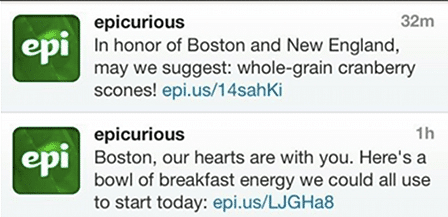
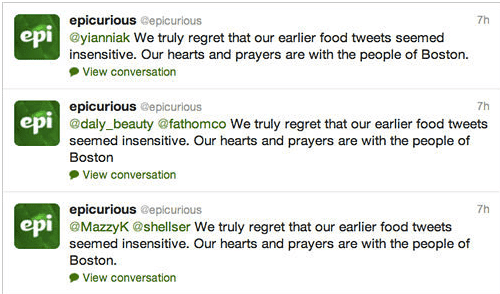
And AT&T’s notorious ‘remembrance’ of 9/11:
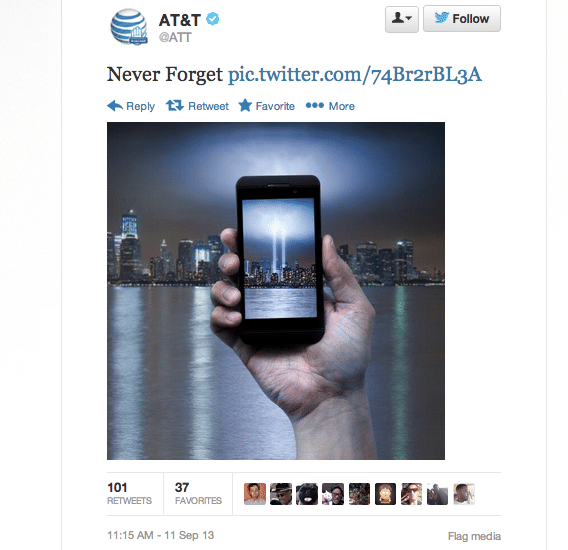
6. Social Media is Forecast to die soonish
Sorry, I know you just got here—but the party is already coming to an end. Numerous linkbait style blog posts have been heralding the death of Facebook over the past couple years. But now, even though Facebook is insistent that its user numbers keep rising, young users are either leaving by the millions (or never joining at all).




